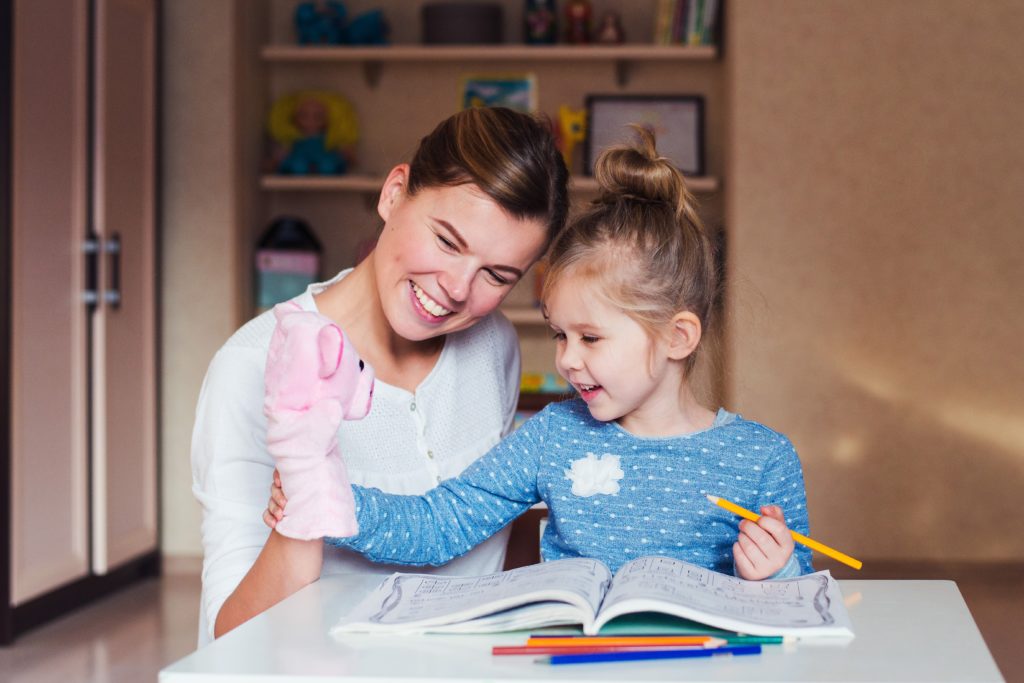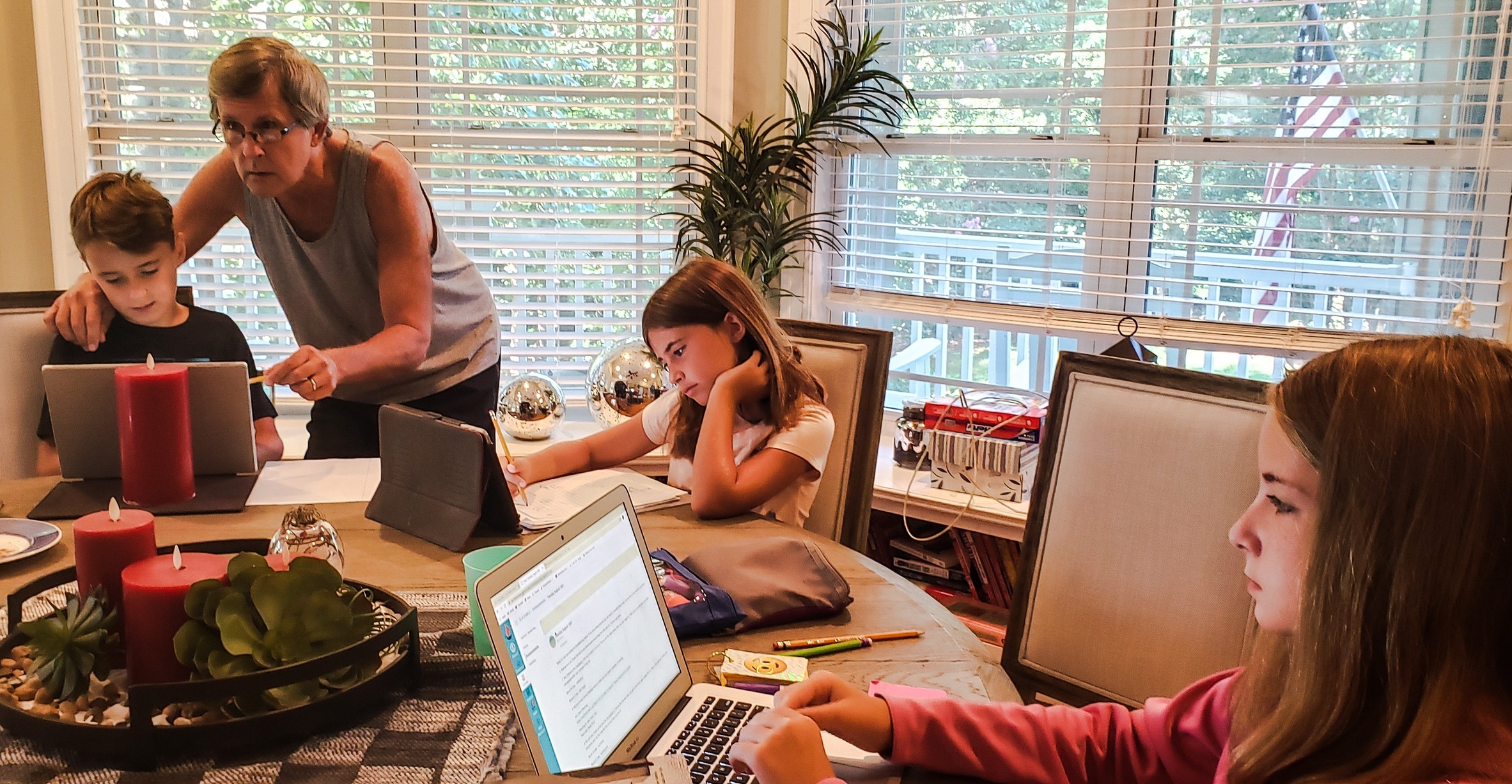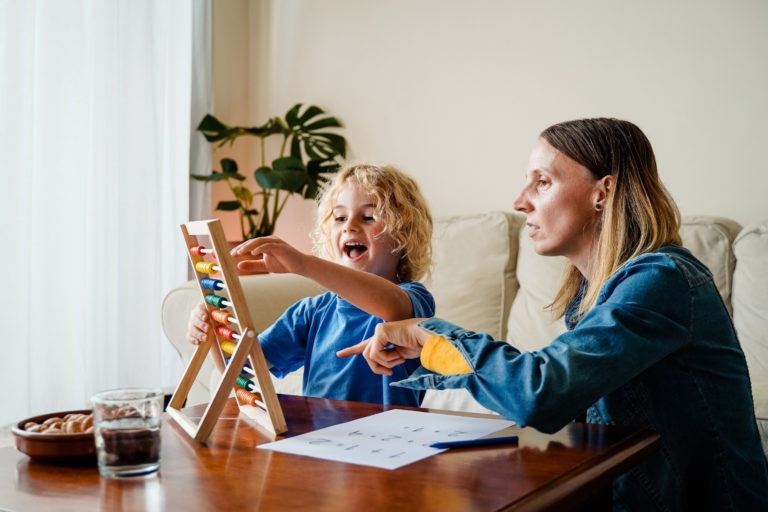Is It Safer to Homeschool? Exploring the Facts
As a concerned parent, you might be wondering: is it safer to homeschool my child?
With the increasing popularity of homeschooling in the United States, it’s crucial to explore the facts and understand the benefits, pros and cons, and regulations associated with this educational choice.
By delving into the topics of academic achievement, socialization, safety, and regulations, we can gain a better understanding of homeschooling and make an informed decision for our children’s education.
Key Takeaways
- Homeschooling has become a popular choice, accounting for roughly 6% of school-age children in the US.
- Benefits of homeschooling include customization of curriculum and personalized learning environments.
- Homeschool students consistently perform well academically, scoring higher on standardized tests compared to traditional school students.
- Homeschooling provides a safer environment for children, protecting them from potential risks in public schools.
- Regulations for homeschooling vary across states, with some having minimal requirements and others imposing stricter regulations.
The Benefits and Drawbacks of Homeschooling

Homeschooling offers various benefits that make it an appealing choice for many families.
One of the primary advantages is the ability to customize the curriculum based on the individual needs and interests of each child.
This personalization allows for a more tailored and effective learning experience.
Furthermore, homeschool students often excel academically compared to their peers in traditional schools.
They typically achieve higher scores on standardized academic achievement tests, indicating a strong academic foundation.
However, it’s important to acknowledge that homeschooling also has its drawbacks. One of the main concerns revolves around socialization opportunities.
Homeschooled children may have limited exposure to peers, which can impact their social development and ability to connect with others.
Another factor to consider is the potential challenges of meeting state homeschooling regulations.
Homeschooling is subject to specific regulations set by each state, and ensuring compliance can be demanding for parents.
By weighing the benefits and drawbacks, parents can make an informed decision about whether homeschooling is the right choice for their family.
It’s essential to establish a supportive and stimulating environment while carefully navigating relevant regulations to provide a well-rounded education for homeschooled children.
Pros and cons of homeschooling:
| Pros of Homeschooling | Cons of Homeschooling |
|---|---|
| Customized curriculum | Limited socialization opportunities |
| Personalized learning environment | Challenges in meeting state regulations |
| Strong academic achievement |
Academic Achievement in Homeschooling

Homeschool students consistently excel academically, surpassing their public school counterparts on standardized tests.
According to research, homeschool students score 15 to 25 percentile points higher than their peers in traditional schools.
In fact, an impressive 78% of peer-reviewed studies on academic achievement demonstrate that homeschool students statistically outperform their counterparts in traditional schools.
One of the remarkable aspects of homeschooling is that academic achievement remains high regardless of the parents’ level of formal education or household income.
Unlike public school systems, where socioeconomic factors often impact student performance, homeschooling provides an environment where a child’s educational success is not limited by external influences.
In homeschooling, parents have the flexibility to tailor the curriculum to their child’s individual needs, allowing for personalized instruction and targeted learning strategies.
This customized approach plays a significant role in the academic achievement of homeschool students, enabling them to reach their full potential and thrive academically.
Through the dedicated efforts of homeschool parents and the unique learning environment they create, academic excellence becomes a hallmark of the homeschooling experience, fostering a love for learning and nurturing intellectual growth in their children.
Socialization in Homeschooling

Contrary to common misconceptions, homeschool students have ample opportunities for socialization outside their homes.
They participate in a variety of activities, including field trips, sports teams, community service, and church ministries, which allow them to interact with peers and adults.
While concerns about socialization exist, homeschooling provides a safer environment for children compared to the potential risks of violence and bullying in traditional schools.
Homeschooling fosters a social environment that encourages meaningful connections and interactions.
By participating in community-based activities, homeschool students develop strong relationships with their peers and adults, resulting in enhanced social skills and emotional intelligence.
These interactions not only provide socialization but also offer valuable opportunities for personal growth and character development.
Moreover, homeschooling offers a protective and nurturing environment for children. Public schools face challenges related to violence, bullying, and substance abuse, which can negatively affect students’ well-being and sense of safety.
By choosing homeschooling, parents prioritize their child’s safety, ensuring a learning environment free from such risks.
Safety Aspects of Homeschooling

When it comes to the safety and well-being of our children, parents understandably prioritize their protection above all else.
This concern for their safety is one of the primary reasons why many parents choose to homeschool their children instead of sending them to traditional public schools.
The reality is that incidents of violence, including physical attacks, robberies, sexual assaults, and drug-related crimes, have been reported in public schools across the United States.
These alarming incidents highlight the need for safer educational environments.
By homeschooling, parents can create a secure and nurturing environment for their children, shielding them from physical violence and exposure to drugs.
Moreover, homeschooling allows parents to safeguard their children from the psychological abuse, racism, and improper sexuality that can sometimes occur in traditional school settings.
As a result, homeschooling provides a safety net, giving parents peace of mind as they facilitate their child’s education.
To illustrate the importance of safety in the homeschooling decision, here is a visually engaging table that highlights the differences between homeschooling and public schools in terms of safety:
| Homeschooling | Public Schools |
|---|---|
| Parents can personally ensure safety measures | Reliance on school systems for safety |
| Avoidance of potential violence and drug-related incidents | Possible exposure to physical attacks and drug-related crimes |
| Closely monitored social interactions | Risk of bullying and mistreatment among peers |
As shown in the table, homeschooling provides a more secure educational setting compared to public schools, allowing parents to protect their children from potential harm.
This safety aspect is a significant factor that contributes to the increasing popularity of homeschooling as an alternative educational choice.
Homeschooling Regulations and Oversight

In the United States, homeschooling regulations vary from state to state.
While some states have minimal requirements, others enforce stricter regulations to ensure the quality and accountability of homeschool education.
Some states may require parents to have educational qualifications or submit their curriculum for review.
These measures aim to ensure that homeschooled students receive a well-rounded education that meets or exceeds the standards set by public schools.
However, the lack of consistent oversight across states raises concerns about child maltreatment and educational neglect in certain homeschooling environments.
Without proper regulation, there is a potential risk of students being deprived of a quality education or experiencing abuse or neglect.
To address these concerns, it is essential for policymakers to establish consistent and effective oversight mechanisms that protect the well-being and educational development of homeschooled children.
This can include regular monitoring of homeschooling environments, standardized testing, and qualification requirements for parents.
By striking a balance between personal freedoms and regulation, we can ensure that homeschooling remains a safe and viable educational choice for families across the United States.
| State | Regulations |
|---|---|
| State A | Requires parents to have a high school diploma or equivalent. |
| State B | Parents must submit a detailed curriculum plan for review. |
| State C | No specific regulations on homeschooling. |
Diversity and Inclusivity in Homeschooling

Homeschooling is a vibrant and diverse educational option that welcomes families from various religious, cultural, and racial backgrounds.
It provides a safe space for parents to instill their values, beliefs, and worldviews into their children’s education, promoting inclusivity and cultural understanding.
Homeschooling statistics show that approximately 41% of homeschool families in the United States are non-white/non-Hispanic, reflecting the growing popularity of homeschooling among minority communities.
By embracing diversity, homeschooling offers a unique opportunity for minority children to receive an education that is free from racism, discrimination, and lower expectations often experienced in traditional schools.
Homeschooling allows parents to create an inclusive environment that celebrates and respects different cultures, languages, and traditions.
This inclusive approach nurtures a sense of identity and belonging among homeschool students, fostering an appreciation for diversity that extends far beyond the confines of a classroom.
Homeschooling empowers families to prioritize cultural heritage, spiritual teachings, and individualized instruction, ensuring that every child’s educational journey is tailored to their unique needs and interests.
By providing an inclusive educational environment, homeschooling not only embraces diversity but also cultivates global awareness and respect for others, preparing students to navigate an increasingly interconnected world.
Academic Success of Homeschool Graduates

When it comes to academic achievement, homeschool graduates have demonstrated remarkable success throughout their lives.
Numerous studies indicate that adults who were homeschooled perform statistically significantly better than those who attended traditional schools.
Homeschool graduates have a higher likelihood of participating in local community service, engaging in the democratic process by voting, attending public meetings, and excelling in college.
These findings highlight the positive outcomes of homeschooling, showcasing the effectiveness of this educational approach in preparing students for future success in academia and civic engagement.
Emotional and Psychological Development in Homeschooling

Research shows that homeschool students have a well-rounded social, emotional, and psychological development. They have the opportunity to build strong family bonds, develop leadership skills, and gain a healthy level of self-esteem.
Homeschoolers also actively participate in community service, fostering a sense of empathy and compassion for others.
While some may question the socialization aspect of homeschooling, it is important to note that homeschool students engage in guided social interactions outside the home.
They have ample opportunities to form healthy relationships with their peers and adults through activities such as field trips, sports teams, and community programs.
By providing a nurturing environment that promotes positive growth, homeschooling allows students to develop into well-rounded individuals.
They are equipped with the social and emotional skills necessary for healthy relationships and overall personal development.
Homeschooling and Child Maltreatment

While homeschooling can provide a safe and nurturing environment for children, concerns about child maltreatment do exist.
The lack of regulation and oversight raises important questions about the protection of children from abuse and neglect in certain homeschooling environments.
It is crucial to consider the potential for maltreatment when deciding to homeschool.
Although the majority of homeschooling parents provide a loving and supportive atmosphere for their children, the absence of consistent oversight can raise concerns about the well-being of homeschooled children.
Implementing homeschooling regulations is essential to ensuring the safety and protection of children and preventing any instances of maltreatment.
Homeschooling and Bullying

Bullying is a significant issue that affects approximately 20% of students in both public and private schools.
It can have serious consequences for children’s well-being and academic performance.
However, homeschooling provides a safer environment that eliminates the potential for bullying and mistreatment among peers.
When children are homeschooled, they are not exposed to the same social pressures and negative influences that can contribute to bullying in traditional schools.
They can focus on their studies without fear of harassment or intimidation from classmates. This creates a more peaceful and supportive learning environment.
While homeschooling offers protection against bullying, it’s important for parents to address the socialization needs of their children.
It is crucial for homeschooled students to have opportunities to interact with others outside their immediate family.
This can be accomplished through local co-ops, extracurricular activities, sports teams, community service, and other social events.
By engaging in these activities, homeschooled children can develop social skills, make friends, and build relationships with peers and adults.
They have the chance to learn how to navigate social situations and develop empathy and respect for others. These interactions outside the home contribute to their overall emotional and social development.
Ensuring Quality Education in Homeschooling

Homeschooling provides parents with the opportunity to deliver a quality education to their children that meets or even exceeds the standards set by public schools.
To maintain the educational standard in homeschooling environments, it is essential to implement appropriate regulations and oversight.
Firstly, one crucial aspect of ensuring the quality of homeschooling is to establish educational qualifications for parents.
By requiring parents to have a certain level of education, such as a high school diploma or college degree, we can ensure that they possess the necessary knowledge and skills to effectively educate their children.
In addition to educational qualifications, standardized testing can be implemented as an objective measure of academic progress.
Regularly assessing homeschool students’ performance through standardized tests helps identify areas of improvement and ensures they are meeting the educational benchmarks.
Closely related to standardized testing is the review of curricula used in homeschooling. By reviewing the curricula or learning materials, we can ensure that they align with the educational standards set by public schools.
This review process guarantees that homeschool students are receiving a comprehensive and well-rounded education.
Implementing these regulations and checks not only ensures the quality of education in homeschooling but also contributes to creating a safe and academically sound alternative to traditional schools.
By establishing educational qualifications, conducting standardized testing, and reviewing curricula, we can maintain high standards and provide parents with the guidance and support they need to deliver an excellent education to their children.
Let’s take a look at a table summarizing the key aspects of ensuring quality education in homeschooling:
| Aspect | Description |
|---|---|
| Educational qualifications | Requiring parents to meet certain educational requirements to ensure they possess the necessary knowledge and skills. |
| Standardized testing | Regularly assessing homeschool students’ academic progress through standardized tests to measure their performance. |
| Curricula review | Reviewing the curricula or learning materials used in homeschooling to ensure they meet educational standards. |
By implementing these measures, we can ensure that homeschooled children receive a high-quality education that prepares them for future success.
Homeschooling as a Personal Choice

Homeschooling remains a personal choice made by parents for various reasons. It allows parents to customize the curriculum based on their child’s individual needs and learning style. They can emphasize their values and include topics and materials that align with their beliefs and worldview.
Homeschooling also creates a supportive learning environment that fosters strong relationships and encourages open communication between parents and children.
However, while enjoying the benefits of homeschooling, it’s important to strike a balance between personal freedoms and regulations to ensure the well-being and educational development of homeschooled children.
Homeschooling regulations play a crucial role in ensuring that children receive a quality education and that parents fulfill their responsibilities as educators. These regulations can include requirements for educational qualifications, standardized testing, and curriculum review.
By finding a balance between personal freedom and regulation, homeschooling can provide an enriching educational experience that meets the needs of both students and parents.
Homeschooling and the Future

Homeschooling is a growing trend that will likely continue to shape the future of education. As parents seek alternatives to traditional schools, homeschooling provides a flexible and personalized approach to education.
Families are increasingly recognizing the benefits of homeschooling and the positive impact it can have on their children’s educational journey.
One of the key advantages of homeschooling is the ability to tailor the curriculum to meet each child’s unique needs and interests. This personalized approach allows students to explore subjects in-depth and pursue their passions.
Homeschooling also offers the flexibility to adapt the learning environment to suit individual learning styles, creating a more effective and engaging educational experience.
Moreover, homeschooling provides an opportunity for parents to instill their values and beliefs into their children’s education. This allows for a values-based education that aligns with the family’s convictions, fostering a strong sense of identity and character development.
While homeschooling offers numerous benefits, it is essential to consider the potential drawbacks as well. Homeschooling parents may face challenges in terms of ensuring a well-rounded education that covers all necessary subjects and meets standardized requirements.
Additionally, the responsibility of designing and implementing a comprehensive curriculum can be demanding for parents who may not have a background in education.
As homeschooling continues to gain popularity, ongoing research and thoughtful regulation are crucial to addressing any potential risks and ensuring that homeschooling remains a viable option.
Striking a balance between parental autonomy and educational standards is crucial to guaranteeing that homeschooled children receive a quality education.
By keeping a pulse on the latest research and adjusting regulations accordingly, policymakers can support and safeguard homeschooled students’ well-being and educational development.
Regular updates to homeschooling regulations should account for changing educational landscapes and the evolving needs of homeschooling families.
Conclusion
In today’s educational landscape, more and more parents are considering homeschooling as a viable alternative to traditional schools. And it’s not hard to see why.
Homeschooling offers numerous benefits, such as academic achievement, personalized education, and a safer environment for children.
Research shows that homeschool students consistently perform well academically, often outscoring their peers in traditional schools on standardized tests.
With the ability to tailor the curriculum to their child’s individual needs, homeschooling parents can provide a personalized and engaging learning experience.
However, it’s important to acknowledge that there are concerns surrounding homeschooling, particularly related to socialization and the need for regulations.
While homeschooling allows parents to create a nurturing and safe environment for their children, it’s crucial to ensure that socialization opportunities are provided outside the home.
Additionally, the issue of homeschooling regulations is a topic of debate. While some states have minimal requirements for homeschooling, others have stricter regulations in place.
Finding the right balance between personal freedoms and necessary oversight is crucial to safeguarding the educational development and well-being of homeschooled children.
Ultimately, the decision to homeschool should consider the unique needs and values of each family.
Homeschooling can be a rewarding and successful educational choice, but it requires careful consideration, commitment, and support from parents and the broader community.
FAQ
Is homeschooling safer than traditional schools?
Homeschooling provides a safer environment compared to potential risks associated with violence and bullying in traditional schools. Parents can protect their children from physical violence, drugs, psychological abuse, racism, and improper sexuality by homeschooling.
What are the benefits of homeschooling?
Homeschooling offers benefits such as the ability to customize the curriculum and create a personalized learning environment. Homeschool students tend to achieve more academically and score higher on standardized tests. Taxpayers also save billions of dollars each year as homeschooling families provide their children’s education without relying on public resources.
Are there any drawbacks to homeschooling?
While homeschooling offers many benefits, there are also drawbacks to consider. One of the main concerns is the potential lack of socialization opportunities for homeschool students. Additionally, meeting state homeschooling regulations can present challenges for some families.
How does homeschooling compare to public schools academically?
Homeschool students consistently perform well academically and score higher on standardized tests compared to public school students. Numerous studies have shown that homeschool students perform statistically significantly better in academic achievement than students in traditional schools.
What about socialization in homeschooling?
Contrary to common misconceptions, homeschool students have ample opportunities for socialization outside their homes. They participate in a variety of activities such as field trips, sports teams, community service, and church ministries, allowing them to interact with peers and adults.
What are the regulations for homeschooling?
Homeschooling regulations vary across different states in the United States. Some states have minimal requirements, while others have stricter regulations, including the need for parents to have educational qualifications or submit curricula for review.
How diverse and inclusive is homeschooling?
Homeschooling embraces diversity, including families from various religious, cultural, and racial backgrounds. Approximately 41% of homeschool families are non-white/non-Hispanic, highlighting the growing popularity of homeschooling among minorities.
Do homeschool graduates succeed academically?
Homeschool graduates have demonstrated academic success into adulthood. Many studies indicate that adults who were homeschooled perform statistically significantly better than those who attended traditional schools. They are more likely to participate in community service, vote, attend public meetings, and succeed in college.
How does homeschooling impact emotional and psychological development?
Research shows that homeschool students have positive social, emotional, and psychological development. They exhibit strong family bonds, leadership skills, self-esteem, and participate in community service. Homeschooling provides a nurturing environment that fosters the development of well-rounded individuals.
Are there concerns about child maltreatment in homeschooling?
The lack of regulation and oversight in homeschooling raises concerns about child maltreatment and educational neglect in certain environments. While the majority of homeschooling parents provide a safe and nurturing environment, the potential for maltreatment is an important factor to consider.
How does homeschooling address the issue of bullying?
Homeschooling provides a safer environment by eliminating the potential for bullying and mistreatment among peers. However, it’s essential for homeschooling parents to address socialization and ensure their children have opportunities to interact with others outside their immediate family.
How can quality education be ensured in homeschooling?
Homeschooling should prioritize the delivery of a quality education that meets or exceeds the standards set by public schools. Implementing regulations, such as educational qualifications, standardized testing, and curriculum review, can help to maintain the educational standard in homeschooling environments.
Is homeschooling a personal choice?
Homeschooling remains a personal choice made by parents for various reasons. It allows parents to customize the curriculum, emphasize their values, and create a supportive learning environment for their children. However, it is essential to strike a balance between personal freedoms and regulations to ensure the well-being and educational development of homeschooled children.
What does the future hold for homeschooling?
Homeschooling is a growing trend that will likely continue to shape the future of education. As parents seek alternatives to traditional schools, homeschooling provides a flexible and personalized approach to education. Ongoing research and thoughtful regulation are necessary to address any potential risks and ensure that homeschooling remains a viable option for families.







